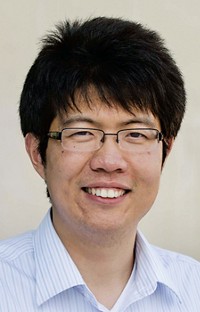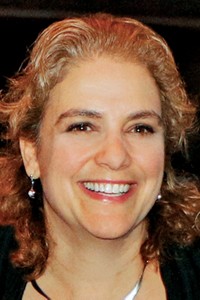Advertisement
Grab your lab coat. Let's get started
Welcome!
Welcome!
Create an account below to get 6 C&EN articles per month, receive newsletters and more - all free.
It seems this is your first time logging in online. Please enter the following information to continue.
As an ACS member you automatically get access to this site. All we need is few more details to create your reading experience.
Not you? Sign in with a different account.
Not you? Sign in with a different account.
ERROR 1
ERROR 1
ERROR 2
ERROR 2
ERROR 2
ERROR 2
ERROR 2
Password and Confirm password must match.
If you have an ACS member number, please enter it here so we can link this account to your membership. (optional)
ERROR 2
ACS values your privacy. By submitting your information, you are gaining access to C&EN and subscribing to our weekly newsletter. We use the information you provide to make your reading experience better, and we will never sell your data to third party members.
For Janis Louie, an associate professor at the University of Utah, the best thing about being a chemist is the satisfying feeling of creation she gets from developing a new reaction. "Most synthetic chemists are motivated by their ability to create something that never existed before, whether it's a new molecule or a new reaction," she says. "Knowing that before my work, a reaction didn't exist or wasn't practical is something I find very rewarding."
Louie's drive to create new reactions earned her the title of "master of reaction discovery" from John F. Hartwig, who was her doctoral research mentor at Yale University and is currently at the University of Illinois, Urbana-Champaign. Louie's prolific work continued while she was a postdoc with California Institute of Technology's Robert H. Grubbs. "The six papers she published with him are spectacular for a postdoctoral stint," Hartwig notes.
Since establishing her lab at Utah, Louie has continued to dream up useful new chemistry. She garnered a prestigious fellowship from the Alfred P. Sloan Foundation last year and was singled out for a Cope Scholar Award for her "development of highly versatile nickel-based catalysts that affect a variety of useful cycloadditions and rearrangements."
The reactions she developed with these catalysts include the cycloaddition of diynes and CO2 to generate bicyclic pyrones. Louie extended the methodology to incorporate isocyanates, ketones, and nitriles, creating a facile route to complex heterocycles.
Louie demonstrated that the same catalysts can be used to rearrange vinylcyclopropanes into cyclopentenes. This transformation has long been recognized as a valuable synthetic procedure, but it requires impractically high temperatures. With Louie's nickel catalysts, the rearrangement proceeds in high yields after an hour or so at room temperature.
Louie's work using free N-heterocyclic carbenes to sequester and deliver CO2 in reactions has also been getting attention lately. "The synthetic methodology her group has developed is most important to organic chemistry," says Texas A&M University's Donald J. Darensbourg. "But more significant for future developments in the area is her ability to definitively define the mechanistic aspects of these processes."
"One of the things that I like most about Janis is that she is not achieving her 'numbers' in terms of productivity by publishing over and over again on the same reaction," says Gary E. Keck, Louie's colleague at Utah. "If you look at her publications to date, almost all of them are on new reactions, with an occasional second paper that represents a more thorough study of a previously reported reaction."
"She has the rare ability to combine the research approach of a physical organic chemist, a synthetic organic chemist doing methodology, and an inorganic chemist," Hartwig says.
Don't let all those impressive accomplishments fool you into thinking Louie has spent her life chained to a lab bench though. Colleagues from her undergraduate days at the University of California, Los Angeles, are more likely to remember her as a Bruins cheerleader. Although cheerleading isn't how most successful academics get their start, it's hard to think of a better way to learn crucial teamwork and risk-taking skills than fearlessly flipping from the top of a human pyramid into the arms of your colleagues.






Join the conversation
Contact the reporter
Submit a Letter to the Editor for publication
Engage with us on Twitter